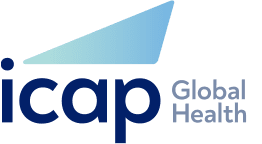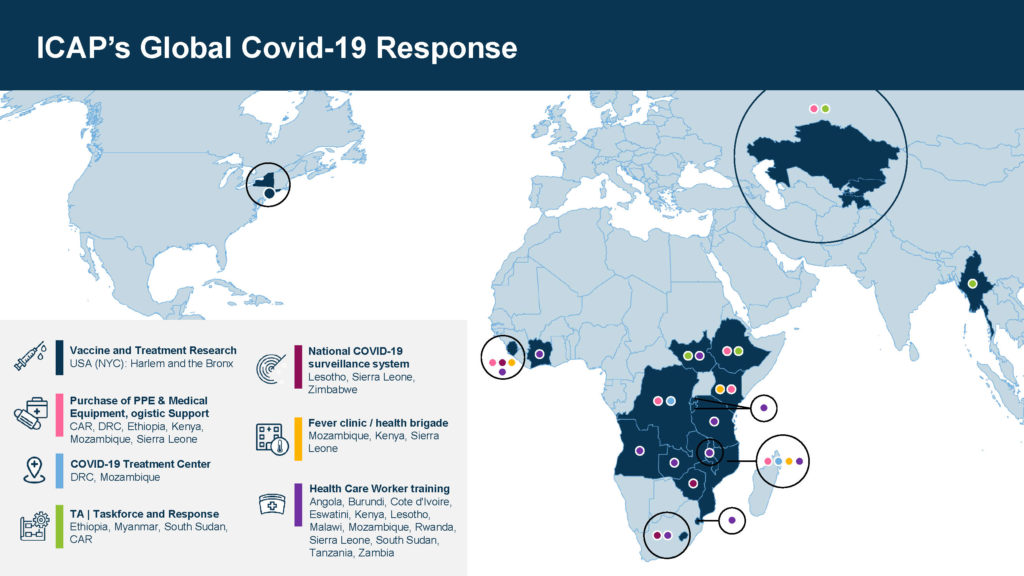COVID-19
COVID-19 & Emerging Diseases
“When COVID-19 emerged, we realized that we had to pivot to quickly mobilize the resources needed in order to respond to the urgent calls for assistance that we were receiving.”
— Wafaa El-Sadr, ICAP Director
From the moment the first evidence of the coronavirus pandemic appeared in late 2019, ICAP at Columbia University recognized the potentially devastating impact of COVID-19 in many of the countries where it works, countries where health systems are particularly fragile. Building on nearly two decades of experience in responding to the world’s most significant public health challenges and harnessing its longstanding partnerships with ministries of health across the globe, ICAP mounted a comprehensive response to COVID-19 in 24 countries in Africa, Asia, and the Americas in partnership with stakeholders in each of the countries.
With tens of millions of dollars in funding raised through relentless efforts and a mandate to act quickly in the face of a dangerous and rapidly spreading disease, ICAP directed its teams and these resources to create firewalls of detection, prevention, and response to stand between the spreading virus and the communities in its path.
ICAP’s ongoing response to the continuing pandemic has spanned the gamut of public health activities, including:
- Training of health workers
- Standing up emergency operation centers
- Establishing fever clinics and health brigades
- Procuring personal protective and medical equipment
- Identifying new prevention and treatment methods
- Optimizing infection prevention and control
- Supporting surveillance and conducting surveys




